 Any discussion about religious wars, clergy violations, or child abuse, and it won’t be long before the The Roman Catholic Church unfortunately features. But I want to have a different discussion. And unlike most of the ‘discussions’ of this nature, I’m not on a mission to attack, ridicule, or mock anyone. Rather, I want to look at what the Roman Catholic Church officially teaches and asserts and compare it with the Bible’s teaching.
Any discussion about religious wars, clergy violations, or child abuse, and it won’t be long before the The Roman Catholic Church unfortunately features. But I want to have a different discussion. And unlike most of the ‘discussions’ of this nature, I’m not on a mission to attack, ridicule, or mock anyone. Rather, I want to look at what the Roman Catholic Church officially teaches and asserts and compare it with the Bible’s teaching.
I’ve been a denominational minister for over two decades, so I know that it is possible to be a part of an organisation with which you disagree on some points. I understand that this is certainly the case with the Roman Catholic Church as there are many priests who do agree with all that their Church asserts. For the purposes of this discussion, I have chosen to take the official Catholic positions on the matters I am comparing with the Biblical data. It is my hope that my Roman Catholic audience will acknowledge that I have represented their views fairly – but it is also my hope that I can appropriately demonstrate how these core views compare with the Biblical prescriptions.
.
 AUTHORITY
AUTHORITY
The foundational difference between Roman Catholicism and Protestantism is Authority. Roman Catholics regard a particular tradition (those decisions and decrees made by Church Councils and the College of Cardinals) as having (at least) equal authority to that of Scripture. Since Christ gave the ‘keys’ of ‘the Kingdom’ to the Apostle Peter, who Catholics assert was the first Pope, it stands to reason that these ‘keys’ are a metaphor for the authority of Christ. Catholic scholar, Dr. Jeffrey Mirus, Ph.D., states-
In one sense, to establish that Christ empowered the popes of the Roman Catholic Church to act as his vicars is sufficient to establish everything else about Christianity, including the foundation of the Church. It is far easier for most of us to perceive the necessity of a Church, however, than to perceive the precise structure or exercise of authority within that Church. Therefore it is expedient to consider precisely how authority is exercised within the Catholic Church, especially with reference to the primacy of the popes. In this way, we will find the surest means to learn all the truths, which God would teach to men.
The traditional assertion of Catholics in this matter is that each pope has the totality and supremacy of the power Christ left on earth for the building up of the kingdom of God. The pope is said to have the plenitudo potestatis, or fullness of power. His authority, direct from Christ after the manner of a vicar, extends equally directly to each man, woman and child committed to his care, namely all men.
THE AUTHORITY OF THE POPE, catholicculture.org
Romans Catholics believe that it was the foundation of authority invested in the first “vicar” (substitute for Christ) that forms the entire basis for the existence of the Roman Catholic Church and every doctrine it espouses. In response to Protestant objections that Scripture is the highest authority, Catholics are quick to point out that it was the original Bishops of the Church who officially sanctioned the Canon of Scripture, thus making them a higher authority than the Bible. But this is actually a non-sequitur. Upon what does the Roman Catholic Church base its foundational teaching (the supreme authority of the Pope)? They cite Matthew 16:18-19 (“And I tell you, you are Peter, and on this rock I will build my church, and the gates of hell shall not prevail against it. I will give you the keys of the kingdom of heaven, and whatever you bind on earth shall be bound in heaven, and whatever you loose on earth shall be loosed in heaven.”) as the documented source of their foundational teaching. But in order to do this, the authority of this Scripture must have precedence. Therefore, the Roman Catholic Church’s claim is actually negated by the source of its claim!
The Pope, Bishop of Rome and the Successor of Saint Peter, is the perpetual, visible source and foundation of the unity of the Church. He is the vicar [substitute or representative] of Christ.”
The Catechism of the Catholic Church, pp. 61–63
Added to this, it wasn’t until the Council of Trent (1545-1563), that the Roman Catholic Church officially recognised the Canon of Scripture. It should be then evident that the foundational claim did not wait until 1563 to be implemented! And the reason for this is obvious – the Canon of Scripture was recognised apart from the Roman Catholic Church as early as the late first century / early second century.It would also be expected that Scripture itself would lend more support to the kind of claim that Roman Catholics state is the foundation “sufficient to establish everything else about Christianity” (ibid., Mirus). But it doesn’t. In fact, the first Church Council, described in Acts 15, was not chaired by the Apostle Peter (rather it was chaired and adjudicated by James, the half-brother of Jesus). In Galatians 2, we read of the Apostle Paul publicly correcting Peter on a matter of faith and practice (Gal. 2:14). In Peter’s own epistle, he admits that he had difficulties understanding the Apostle Paul’s writings (which he calls, “Scripture”, 2Peter 3:16). These Biblical references do more than merely present an absence of Scriptural support for the claim that Peter was the first Pope who enjoyed infallibility – they blatantly counter it! This Biblical data has led to the recent acknowledgement by the Roman Catholic Church that –
“The New Testament texts offer no sufficient basis for papal primacy and that they contain no explicit record of a transmission of Peter’s leadership.”
Authority in the Church II, ARCIC, para 2, 6
Despite Catholic claims that history (and thereby, tradition) support this foundational claim, we have records of Ante-Nicene Fathers denouncing the notion of any bishop having supremacy over another bishop. This is further evidenced by the Council of Nicea (ca. A.D. 312) and the Bishop of Rome’s role at this Council where he was neither the Chair of the Council nor the Adjudicator of it. Then at the Council of Constantinople (A.D. 381) the Bishop of Rome asserted supremacy over the other Bishops which was soundly rejected by them and the Council was chaired by the Bishop of Antioch.
For neither does any of us set himself up as a bishop of bishops, nor by tyrannical terror does any compel his colleague to the necessity of obedience; since every bishop, according to the allowance of his liberty and power, has his own proper right of judgment, and can no more be judged by another than he himself can judge another. But let us all wait for the judgment of our Lord Jesus Christ, who is the only one that has the power both of preferring us in the government of His Church, and of judging us in our conduct there.
Cyprian, Ante-Nicene Church Father, ca. A.D. 250
“But that they who are at Rome do not observe those things in all cases which are handed down from the beginning, and vainly pretend the authority of the apostles; any one may know also from the fact, that concerning the celebration of Easter, and concerning many other sacraments of divine matters, he may see that there are some diversities among them, and that all things are not observed among them alike, which are observed at Jerusalem, just as in very many other provinces also many things are varied because of the difference of the places and names.”
Cyprian, Epistle 74, 6
THE CANON OF SCRIPTURE
The Roman Catholic Church teaches that Scripture is (somewhat) authoritative, but only so far as the Church interprets it. In doing so, it makes its tradition virtually equal in authority to Scripture.

As has been shown, the Roman Catholic Church actually attempts to draw its primary source authority from Scripture, so as to claim that Scripture should not be regarded as the primary source of authority(!). Following this method, we look to Scripture for any indication that it relegates its own authority to a College of Cardinals and their interpretation of its contents. But we find nothing. In fact, we find from the mouth of Christ Himself some of the most emphatic declarations about Scripture’s unique authority.In response to the Roman Catholic Church’s diminution of Scripture’s authority, the Reformers drew on Scripture itself and coined the the Latin phrase, Sola Scriptura (“Scripture alone”). The Catholic response to this is generally that Scripture itself was ‘canonised” by the Roman Catholic Church. We have already seen though how this is a non sequitur and, at best, circular reasoning. The Reformers gave the following reasons for Sola Scriptura –
1. The Bible is a direct revelation from God –
It therefore has divine authority. What the Bible says, God says.
2. The Bible is sufficient –
It is all that is necessary for faith and practice.
3. The Bible is the final authority –
Jesus spoke of the Scriptures in the highest possible terms of authority. Church fathers, Popes, Bishops, and Councils are all fallible. The Bible is infallible.
4. The Bible is perspicuous –
‘Perspicuity’ means “clear”. The main things are the plain things. The plain things are the main things.
5. The Bible interprets itself –
The unclear passages of Scripture are interpretted by the clear passages.

Dr Michael Horton, adds this insightful comment –
But, granting the infallibility of Scripture, how on earth could an infallible Word be understood and interpreted correctly without an infallible teacher? In answering this understandable objection, the Reformers simply followed many of their fellow Catholic humanists in pointing to the contradictory claims of popes and councils in the Middle Ages. History simply proved that the church was not infallible, so long as the law of noncontradiction applied. The best way to guard a true interpretation of Scripture, the Reformers insisted, was neither to naively embrace the infallibility of tradition, nor the infallibility of the individual, but to recognize the communal interpretation of Scripture. The best way to ensure faithfulness to the text is to read it together, not only with the churches of our own time and place, but with the wider “communion of saints” down through the ages. The community may err, but “there is much wisdom in many counselors,” and we are most likely to be faithful to the text when we recognize that it is infallible but we are not.
“What Still Keeps Us Apart”, Prof. Michael S. Horton, the-highway.com

Naturally, these two issues, Authority and the Canon of Scripture, are of primary importance in any consideration of whether Roman Catholicism comports with the Biblical prescription for doctrine and practice. In our brief examination of how Catholic teaching compares with Scripture, it has been shown that not only does Catholic teaching not comport with Scripture, it actually contradicts it. But as is hinted at in the above graphic, the real issue is actually how Roman Catholic teaching about salvation (the Atonement and Justification) compares with Scripture. This will be the focus of the second article in this series.
© Andrew Corbett, January 1st 2014, Legana Tasmania
-
Sale!
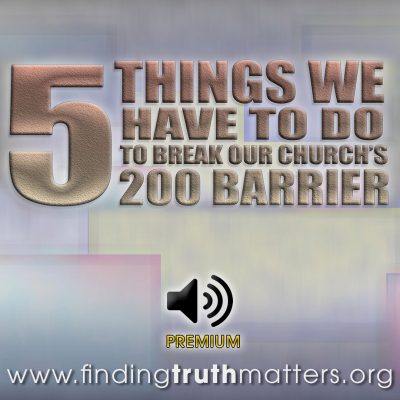
5 Things We Need To Do To Break Our Church’s 200 Barrier, Premium Audio
Original price was: $1.75.$0.95Current price is: $0.95. -
Sale!
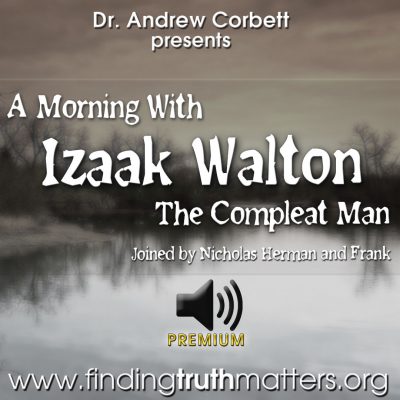
A Morning With Izaak Walton – The Compleat Man, Premium Audio
Original price was: $1.75.$1.25Current price is: $1.25. -
Sale!
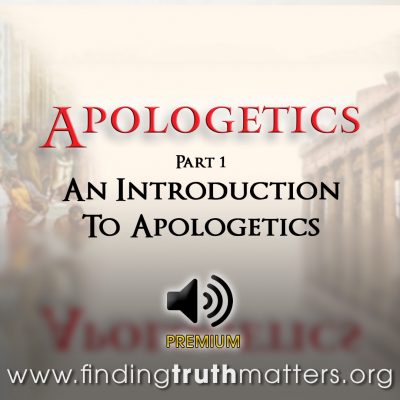
Apologetics Part 1 – Introduction To Apologetics, Premium Audio
Original price was: $1.75.$0.95Current price is: $0.95. -
Sale!
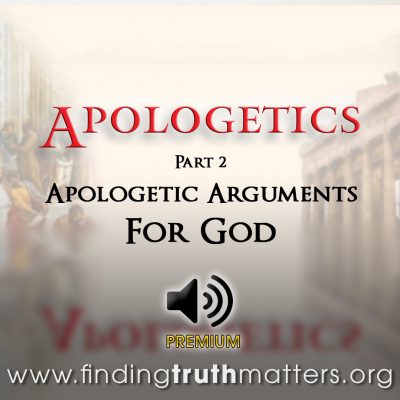
Apologetics Part 2 – The Apologetic Arguments For God, Premium Audio
Original price was: $1.75.$0.95Current price is: $0.95. -
Sale!
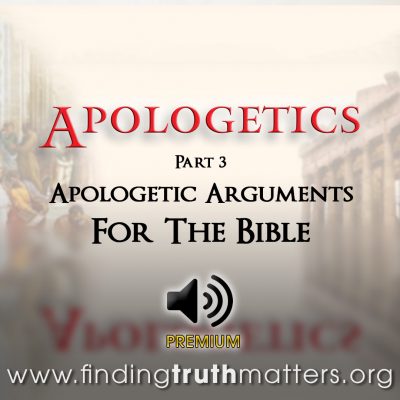
Apologetics Part 3 – The Apologetic Arguments For The Bible, Premium Audio
Original price was: $1.75.$0.95Current price is: $0.95.



0 Comments